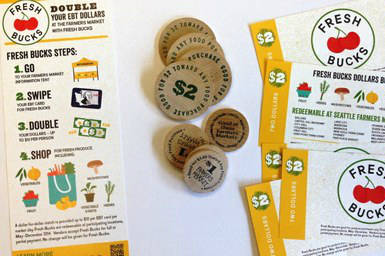After Mayor Ed Murray announced this morning his revised proposal for a soda and sugary beverage tax, beverage industry representatives slammed the tax, saying it would kill jobs. But as the legislation moves through city council over the next two months or so, the bigger controversy may not be whether to tax, but how to spend.
In its current iteration, the soda/sugary beverages tax has the pledged support of at least three councilmembers: Tim Burgess, Rob Johnson and Sally Bagshaw. But some councilmembers—including Mike O’Brien, Lisa Herbold and Bruce Harrell—are hesitating. Not because they’re worried about overtaxing sugar water-based businesses, but because of pressure from Got Green and allied organizations to spend more of the tax revenue thus raised on expanding access to healthy food in poor communities.
“I support the concept” of the soda/sugar beverage tax, said O’Brien today. “These pop companies are making millions of dollars…at the expense of these communities.” But the end result, he said, must be to make people healthier, not poorer.
In a January email to O’Brien’s office, Got Green executive director Jill Mangaliman explained their organization’s concerns:
“According to projections by the campaign, if the tax is set at 1 cent, it would generate $18 million, and set at 2 cents it will generate $25 – 30 million. We believe much of this revenue will be raised from the paychecks of low-income families and communities of color. We worry that without directed funds towards closing the food security gap, the Sugary Drink Tax will produce regressive and harmful impacts to food-insecure and vulnerable communities, rather than lifting them up. Targeted investments in food security programs are vital to expanding access to healthy food, creating a sustainable, local food system, and stimulating economic activity.”
One way to direct the soda tax revenue toward closing the food security gap, wrote Mangiliman, is to subsidize “Fresh Bucks” coupons that help low-income people buy fresh produce. That program is currently funded by a federal grant, but mayoral staff say they expect that grant to not be renewed. As a consequence, the mayor is proposing spending $3.2 million in city funds annually to support the Fresh Bucks program, according to mayoral staff.
Reached for comment this afternoon, Mangaliman emphasized that this debate is about how to spend the tax revenue, not whether to pass the tax. “We support the sugary beverage tax,” they said. “This is really exciting. We want to ensure this tax is reinvested in the communities that are going to be hit the hardest” by it. At least a third of the money raised from the soda/sugary beverage tax should go toward helping poor people access healthy food, they said.
cjaywork@seattleweekly.com









